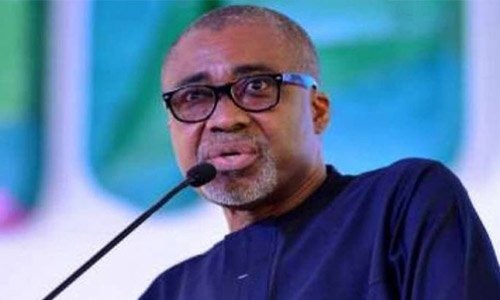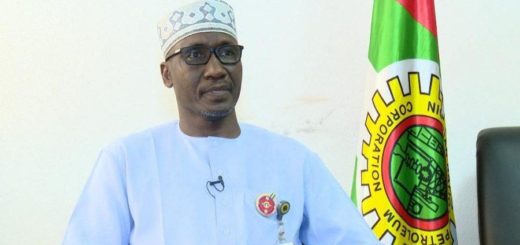“We Generate What We Can’t Deliver” — Abaribe Paints Bleak Picture of Nigeria’s Power Mess
 Senator Enyinnaya Abaribe, Chairman of the Senate Committee on Power, has sounded the alarm over Nigeria’s deteriorating electricity sector, warning that the federal government’s unpaid subsidy commitments to electricity distribution companies have now surpassed N4 trillion.
Senator Enyinnaya Abaribe, Chairman of the Senate Committee on Power, has sounded the alarm over Nigeria’s deteriorating electricity sector, warning that the federal government’s unpaid subsidy commitments to electricity distribution companies have now surpassed N4 trillion.
Speaking in an interview on Monday, the Abia South senator described the sector as “trapped in a vicious cycle of poor revenue, crumbling infrastructure, and broken trust.” He stressed that the situation is no longer just a political failure but a national disgrace.
“This isn’t about APC or PDP. It’s about a system that is simply not working — from power generation to distribution,” Abaribe said.
He outlined the dysfunction: Generation Companies (Gencos) produce over 7,000 megawatts of electricity, but the Transmission Company of Nigeria (TCN) — still fully owned by the federal government — can’t transmit that volume. Worse still, Distribution Companies (Discos) can only deliver about 5,000 megawatts to consumers due to outdated infrastructure and financial constraints.
“That mismatch between what’s generated and what can be transmitted or distributed shows just how broken the entire value chain is,” he explained.
At the heart of the crisis, Abaribe said, is the federal government’s failure to honor its subsidy promises. The cost of electricity — covering generation, transmission, and distribution — is meant to be partly offset by government subsidies. But according to him, those payments rarely come, and the debts keep piling up.
“This unpaid balance has grown to over N4 trillion. It’s unsustainable,” he declared.
The consequences are dire: banks are unwilling to finance Discos due to their poor financial health, while Gencos, starved of funds, can’t pay gas suppliers — leading to frequent shutdowns of thermal power plants, which account for 80% of Nigeria’s electricity.
Making matters worse, Abaribe pointed to the fragility of Nigeria’s centralized transmission system, which is operated from a single control point in Osogbo.
“If the grid trips in Lagos, it could cut power to the entire North. That’s how vulnerable we are,” he warned.
To reverse the decline, Abaribe called for an urgent rollout of a national metering programme to ensure fair billing and rebuild consumer trust. “If everyone is metered, they’ll only pay for what they use. That transparency is key to restoring revenue,” he said.
He also urged the federal government to directly invest in expanding transmission capacity, emphasizing that since the TCN is fully government-owned, there are no legal or ownership barriers to immediate intervention.













